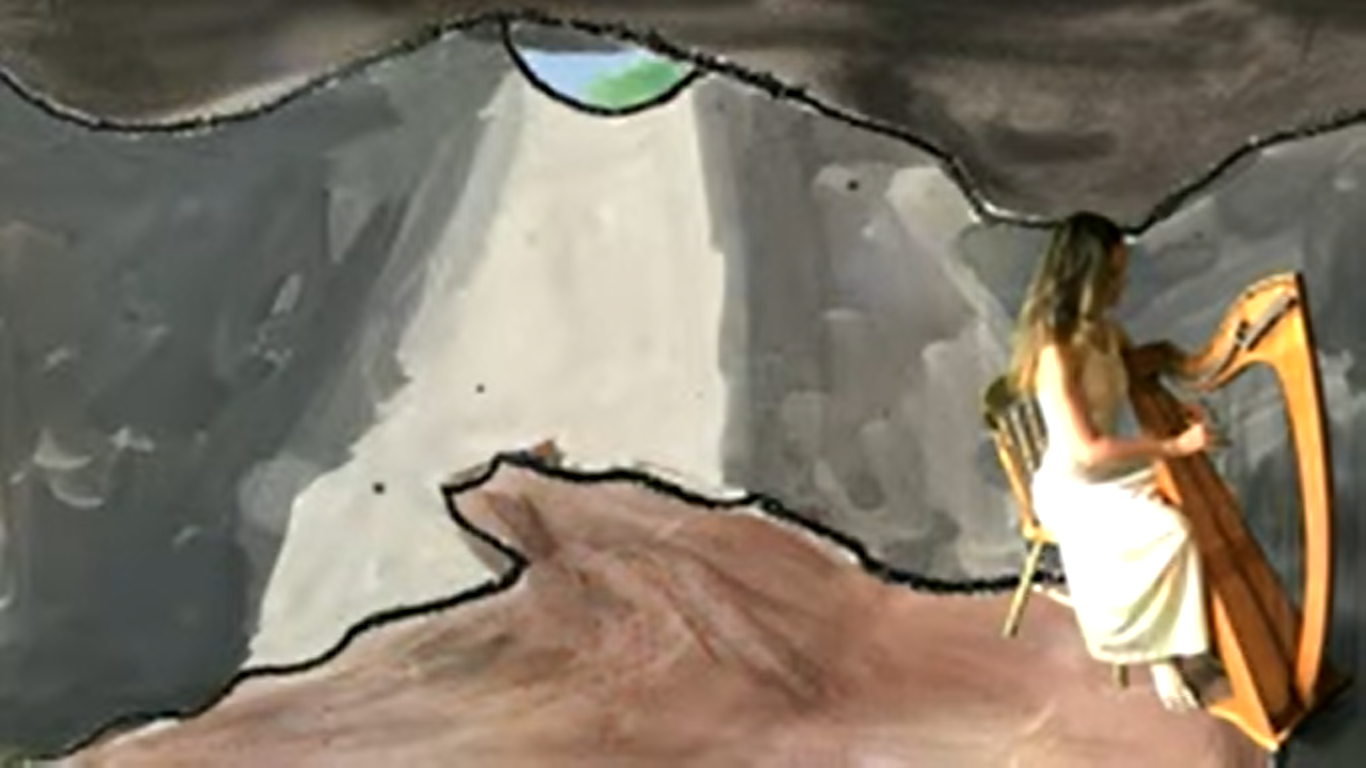Scots as a language learning option in schools
6. Community Links

Still from Wandering Oisin HOME | scotsoperaproject
The Scots Opera Project
The Scots Opera Project is an arts organisation based in the West of Scotland which presents opera and classical music in Scots. Creative director and tenor David Douglas formed the arts organisation in 2014. The company consists of a core of professional singers and instrumentalists, librettists creating original translations of classical repertoire in Scots, and composers interpreting existing Scots texts.
Watch the news item from STV news, Opera in Scots, about the project to get a first impression about the project and the challenges of performing an opera in the Scots language – Michael Dempster features too.
Now read Michael’s observations:
Each production works with a community chorus who attend an intensive course supported by vocal coaching and language coaching. In addition to this outreach workshops engage with community arts organisations for set design and schools with singing and Scots language activities.
Productions thus far include Scots translations of Charpentier’s Actéon, and La Descente D’Orphée Aux Enfers, (Christopher Waddell) & Mozart’s The Magic Flute, and Purcell’s Dido & Aeneas (Dr Michael Dempster.) Working with composer Alan Fleming Baird The Scots Opera Project have performed his original opera Tannahill, and his new operatic version of Robert Burns’ ‘The Jolly Beggars’.
In my role as librettist and language coach I have had the pleasure of working very closely with a wide variety of professional singers and highly skilled amateur singers. It is often a very mixed group with broad Scots speakers, Scottish Standard English speakers who have a high comprehension of Scots through to those who have little comprehension, and first and second or other language English speakers.
We work on singing in a Scots accent, having developed a method similar to what you find in the established operatic languages, and Scots language comprehension, to enable singers to interpret the meaning of the libretto and act the song.
Singing in a Scots accent is a learning experience for most singers, regardless of their linguistic background, as we often learn to sing in accents that are not those which we use for speech. Some features we explore are the sounds of Scots, stress patterns, syllable count. One feature in particular is the vowel sound in words like ‘wife’, ‘side’, and ‘Clyde’ which are part of spoken Scots accents, but are rarely sung as the distinction between, for example, ‘side’ and ‘sighed’ is not present in other accents used to speak English.
Scots language comprehension can be an excellent group experience as many participants have full knowledge of the meaning of the text and others find it completely opaque. I facilitate company and chorus members in sharing the meanings of words, phrases and complete songs with one another, serving to give authoritative answers only when the group are not able to arrive at a consensus. In a classroom setting this approach is useful to draw from the linguistic expertise pupils bring with them.
As I write the libretti in a pan-dialectical Scots this accommodates dialect variation within principle singers and the chorus. When we have performed in different areas of Scotland, we are able to discuss the dialectical variations in the small number of words where this comes up. We settle upon the pronunciation local to the performance. For principle singers we discuss the appropriate dialect for their character and invariably they wish to sing in their own dialect. For example, in The Magic Flute the singer who played Pappageno described himself as a Doric speaker and chose to sing ‘wh’ words with an ‘f’ and alter the vowel sounds of the handful of variant words to North East Scots. Pappagena sang in her Ayrshire dialect.
Participants regularly feed back very favourably on the course and there is a very high return rate at subsequent productions. Those who didn’t speak Scots often report their delight in being able to engage with the linguistic culture of the place they have made home. Those with Scots accents and those who speak Scots frequently identify it as a transformative experience that validates their own voice and accent. All participants go on to sing in Scots and with a Scots accent in their own work away from The Scots Opera Project productions rightly identifying singing in Scots and with a Scots accent as a valuable skill to proudly include in their performance range.
“It’s a really interesting way to sing. It’s not something I’m used to, which is odd because [given] our accent and the way we speak it kinna comes naturally once you speak it. But combining that with operatic singing, it’s really interesting.” - Stephanie Strachan, Soprano and participant.